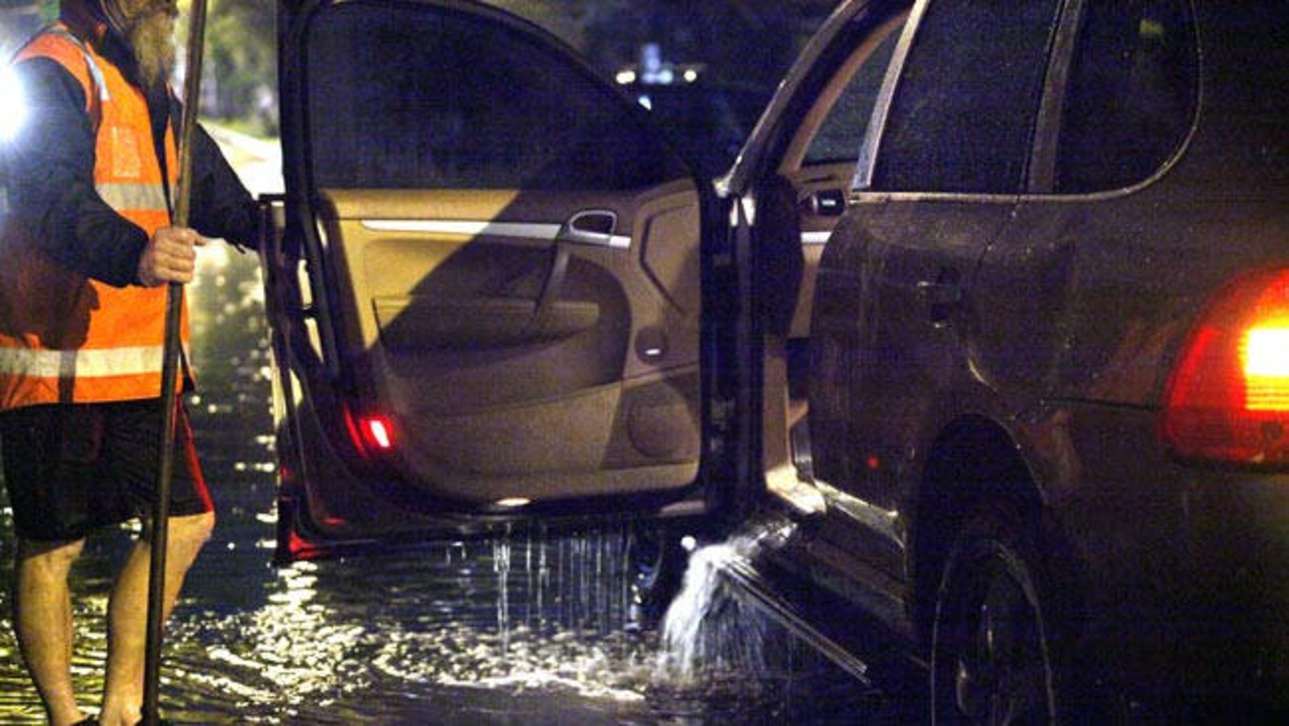In the wake of floods and storms in Queensland and NSW this year, buyers have been warned that some cars may be sold without their damage history being declared.
David Scognamiglio, boss of consumer vehicle research site carhistory.com.au, says buyers can be caught out not realising that most vehicles deemed statutory write-offs cannot be repaired legally and warranties are instantly void.
"But that doesn't stop some independent sellers trying to rip off unsuspecting buyers," he says. "There are likely to be thousands hitting the market in the next few months. "We've already seen them at a lot of auctions for flood-damaged cars. Pickles in Geelong, alone, has 500 coming up later this month.
"In 2011 after the Queensland floods and cyclones we saw a 20 per cent increase in written-off and flood-damaged vehicles."
Insurance companies yesterday did not have official figures of flood-damaged vehicle claims but say that with widespread flooding across most eastern states so far this year it could be thousands.
The Motor Trades Association of Australia has also warned that many of these vehicles could be cleaned and repaired and put back on the market without buyers being made aware. MTAA senior policy officer Colin Duckworth said the problem would be solved if all states and territories could agree on a single definition for a flood-damaged vehicle.
He said the new Personal Property Securities Register includes a variety of car history such as whether it is lost, stolen, encumbered or a damaged write-off. Buyers can do a PPSR vehicle check online through the Department of Insolvency and Trustee Service in the Attorney General's department at a cost of $3.70. Motorists must supply the vehicle identification number (VIN) or chassis number.
"But the problem is that at this early stage there are inconsistencies in the information available," Duckworth said. NSW has the toughest restrictions on write-offs preventing them being registered anywhere in Australia, but Scognamiglio says there are even ways around those restrictions.
"You can't register a written-off vehicle unless you are licensed to repair them and it is repaired to a certain standard, or if you have owned it longer than five years you can repair it. "If you really want to get them back on the road, there is a way." Private owners without comprehensive insurance could also clean up a submerged car and sell it without the vehicle being declared flood damaged.
If it's written off by the insurance company it falls into the range of notifiable vehicles, but if it's older than 15 years or a private vehicle not fully insured, owners are able to clean them up and sell them. "In many cases the salvageable cars are simply washed and offered for sale as they stand and can range from driveable to barely recognisable," Scognamiglio said.
While reputable dealers advertise cars as flood damaged, others may be offered for sale without buyers being told of the damage. "As the market fills with more flood damaged vehicles and with many ways the seller can conceal the history, it's absolutely necessary for buyers to know what to look for to check for water damage," Scognamiglio said.
Cars are often sold in locations far from their origin, so buyers across all states and territories need to be aware of this issue, he said. Flood-damaged vehicles sold at auction may not carry manufacturer warranties, or may only have conditional manufacturer warranties.
BUYER BEWARE
Tips for buyers to check a car for flood damage:
- Look in the glove box for a tide mark.
- Check behind the dashboard and under the seat for signs of water or mud.
- Ensure there is no debris in suspension components.
- Open the fuse box and check for debris or rust.
- Lift seat covers and inspect original fabric.
- Inspect the carpet and check for musty/damp smell.
- Check for signs of water entry in the engine/driveline and start the engine.
- Check that the vehicle can be reregistered.
- Perform a vehicle history check at www.ppsr.gov.au or carhistory.com.au





.jpg)
.jpg)



.jpg)
.jpg)








Comments